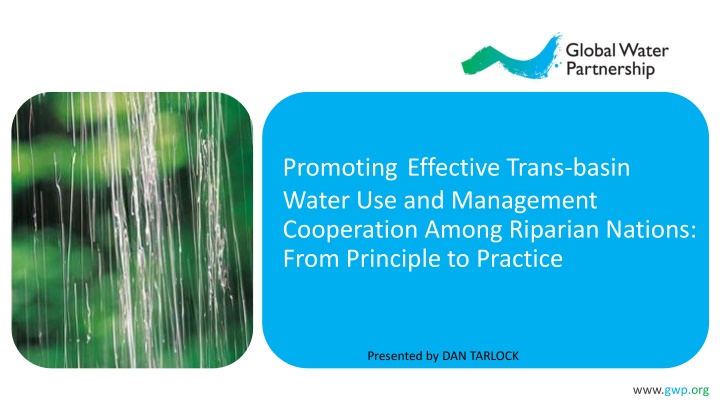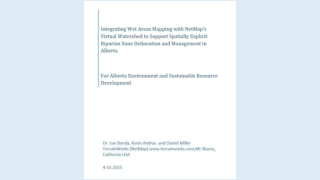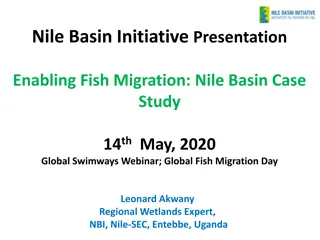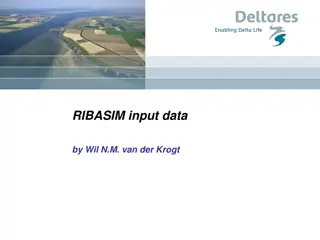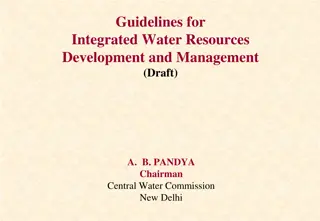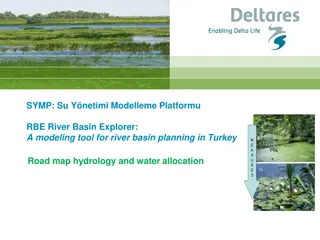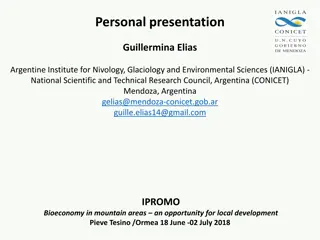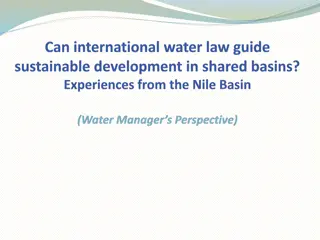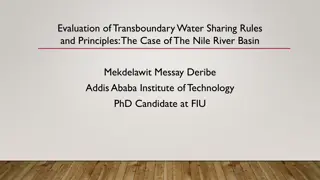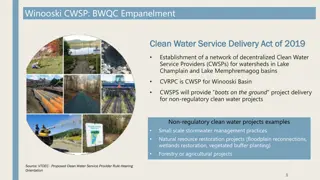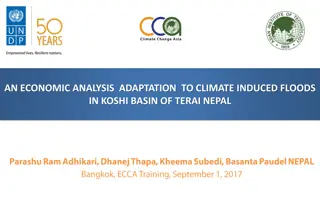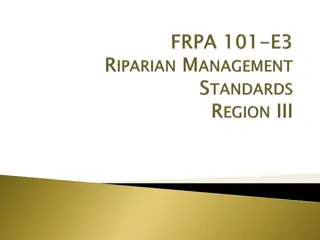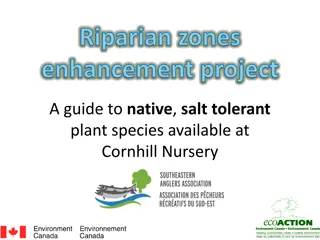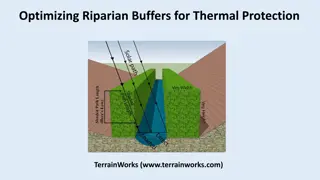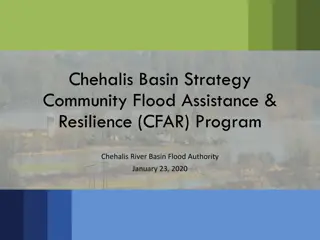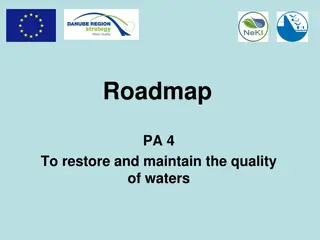Promoting Effective Trans-basin Water Management Cooperation Among Riparian Nations
This paper presented by Dan Tarlock discusses the importance of effective trans-basin water management cooperation among riparian nations. It outlines the challenges, such as moving from formal to effective cooperation, and emphasizes the need for measurable benefits and a strong legal framework. International water law is highlighted as a key in achieving successful collaboration in managing shared water resources.
Download Presentation

Please find below an Image/Link to download the presentation.
The content on the website is provided AS IS for your information and personal use only. It may not be sold, licensed, or shared on other websites without obtaining consent from the author.If you encounter any issues during the download, it is possible that the publisher has removed the file from their server.
You are allowed to download the files provided on this website for personal or commercial use, subject to the condition that they are used lawfully. All files are the property of their respective owners.
The content on the website is provided AS IS for your information and personal use only. It may not be sold, licensed, or shared on other websites without obtaining consent from the author.
E N D
Presentation Transcript
Promoting Effective Trans-basin Water Use and Management Cooperation Among Riparian Nations: From Principle to Practice Presented by DAN TARLOCK www.gwp.org
Purpose of the Background Paper Purpose of the Background Paper Continuation of GWP Background Paper 17: International law- Facilitating Transboundary Water Cooperation This paper is directed GWP basin partners, water managers and water professionals who work with trans-basin water management institutions. The paper presents an analytical model to measure effective trans-basin cooperation www.gwp.org August 2015
Table of Content in shell Table of Content in shell Aspiration vs effective cooperation To cooperate or not? The role of international water law Preliminary cooperation Open-ended cooperation Specific issue cooperation Allocation and cooperation Cooperation through cost and benefits sharing Conclusions www.gwp.org August 2015
Water Resources Challenges Water Resources Challenges The primary challenge for trans-basin management is to move from formal to effective cooperation Formal cooperation refers to agreements among riparian nations to cooperate without specific cooperation goals Effective cooperation is outcome cooperation www.gwp.org August 2015
Water Resources Challenges Water Resources Challenges Outcome cooperation refers to meaningful steps to improve water security in basin by allocating, managing or re-allocating shared water resources Outcome cooperation can include Shared financial benefits An initial allocation of each nation s water entitlement A reallocation to provide fairer access among all basin nations Adaptation to changed conditions such as climate change or the restoration of degraded aquatic ecosystems www.gwp.org August 2015
Conclusions in the paper Conclusions in the paper Existing transboundary-basin cooperation studies do not distinguish among different levels of cooperation along the cooperation continuum Effective transboundary basin cooperation is a central element of enhanced basin water security Cooperation must provide measurable benefits to basin nations Effective cooperation requires a strong legal framework International water law provides such a framework www.gwp.org August 2015
Key messages Key messages There are many examples of the failure of trans-basin states to cooperate, but There are examples of effective cooperative cooperation These examples provide precedents which can be adapted to the hydrological and political context of individual basins Effective cooperation can be integrated into the GWP s IWRM framework to help individual basins achieve concrete water security goals www.gwp.org August 2015
Read the full paper here: http://www.gwp.org/en/ToolBox/PUBLICATIONS/Background- papers/ For more knowledge products of GWP Technical Committee here: http://www.gwp.org/en/ToolBox/PUBLICATIONS/ www.gwp.org August 2015
